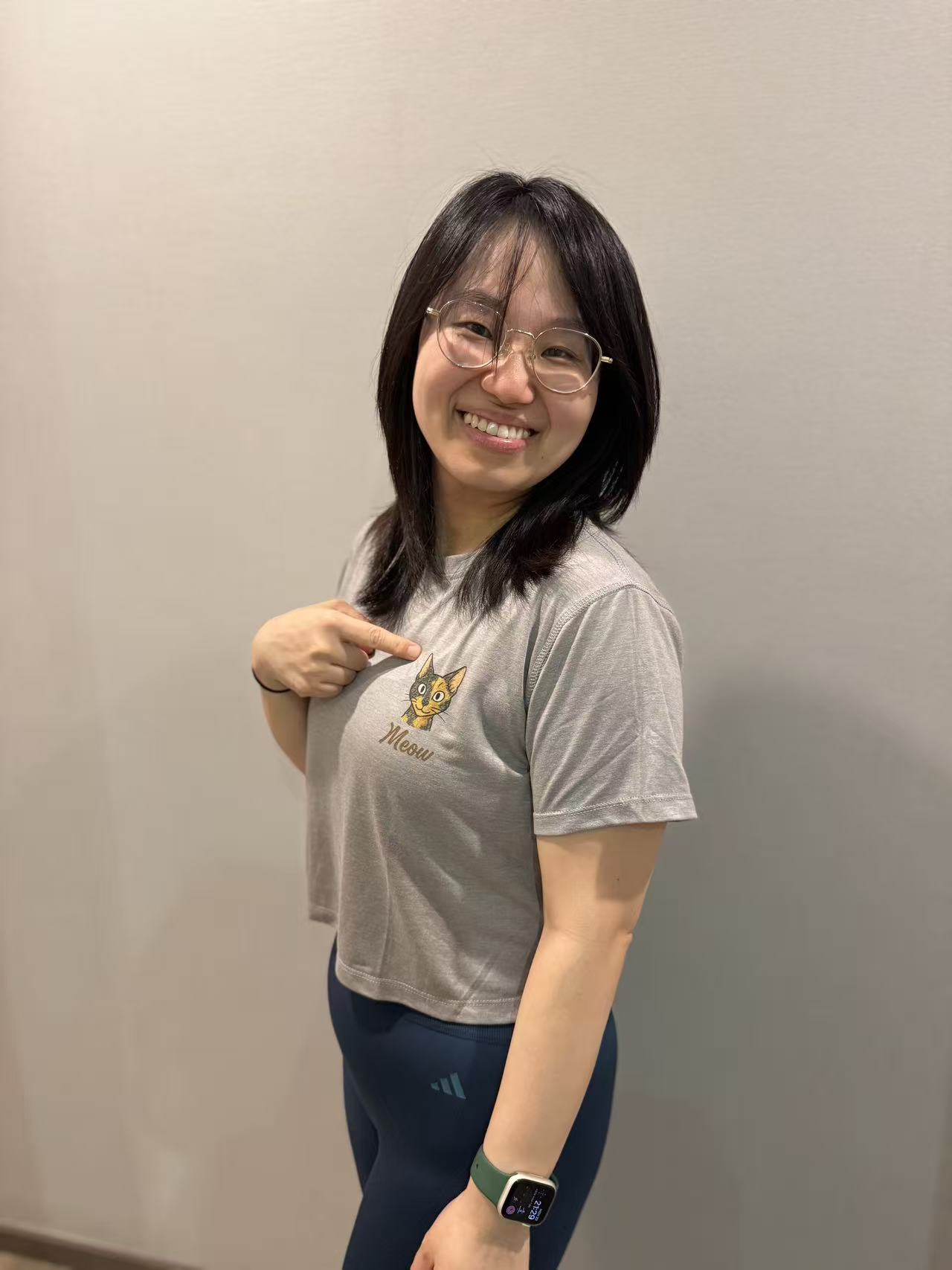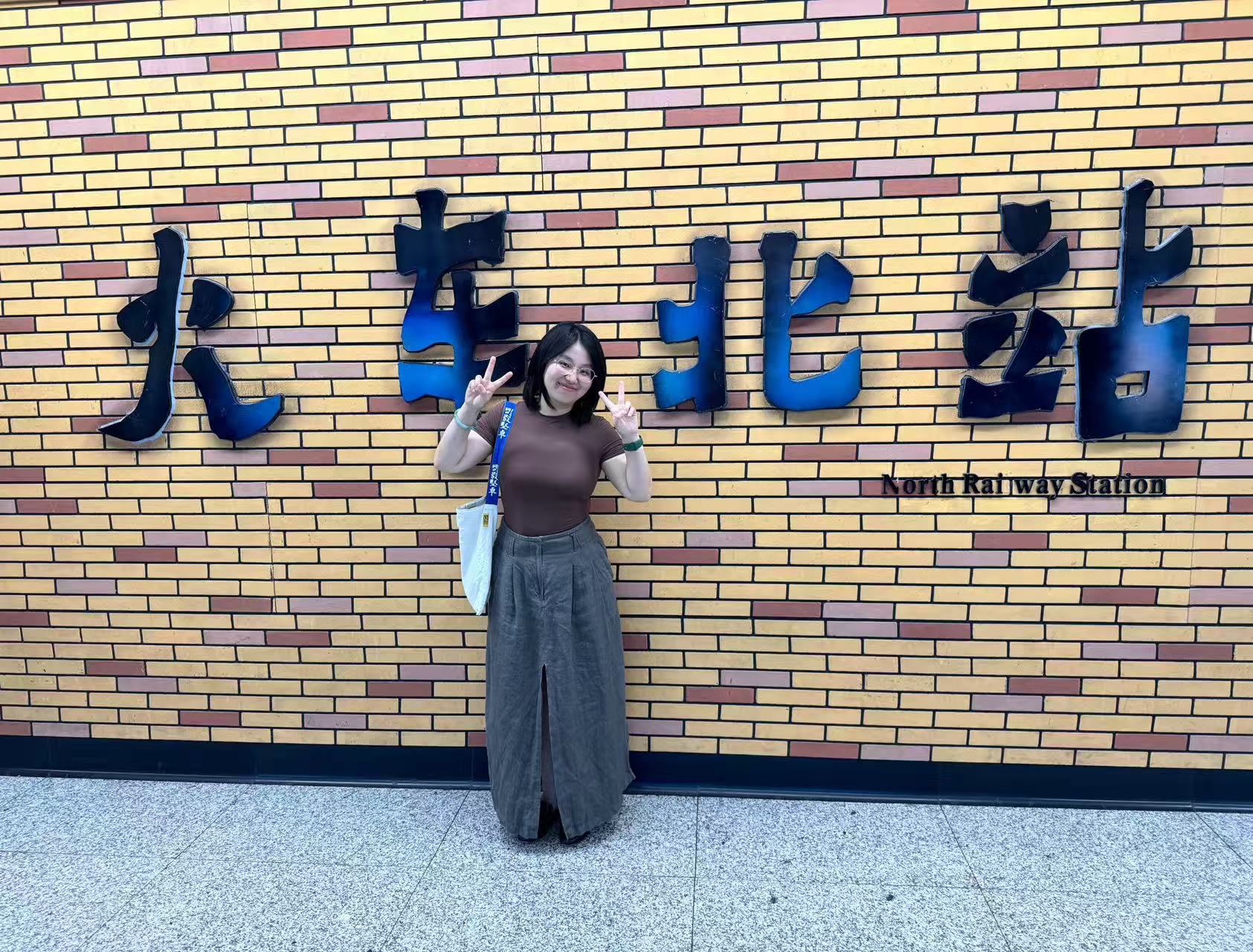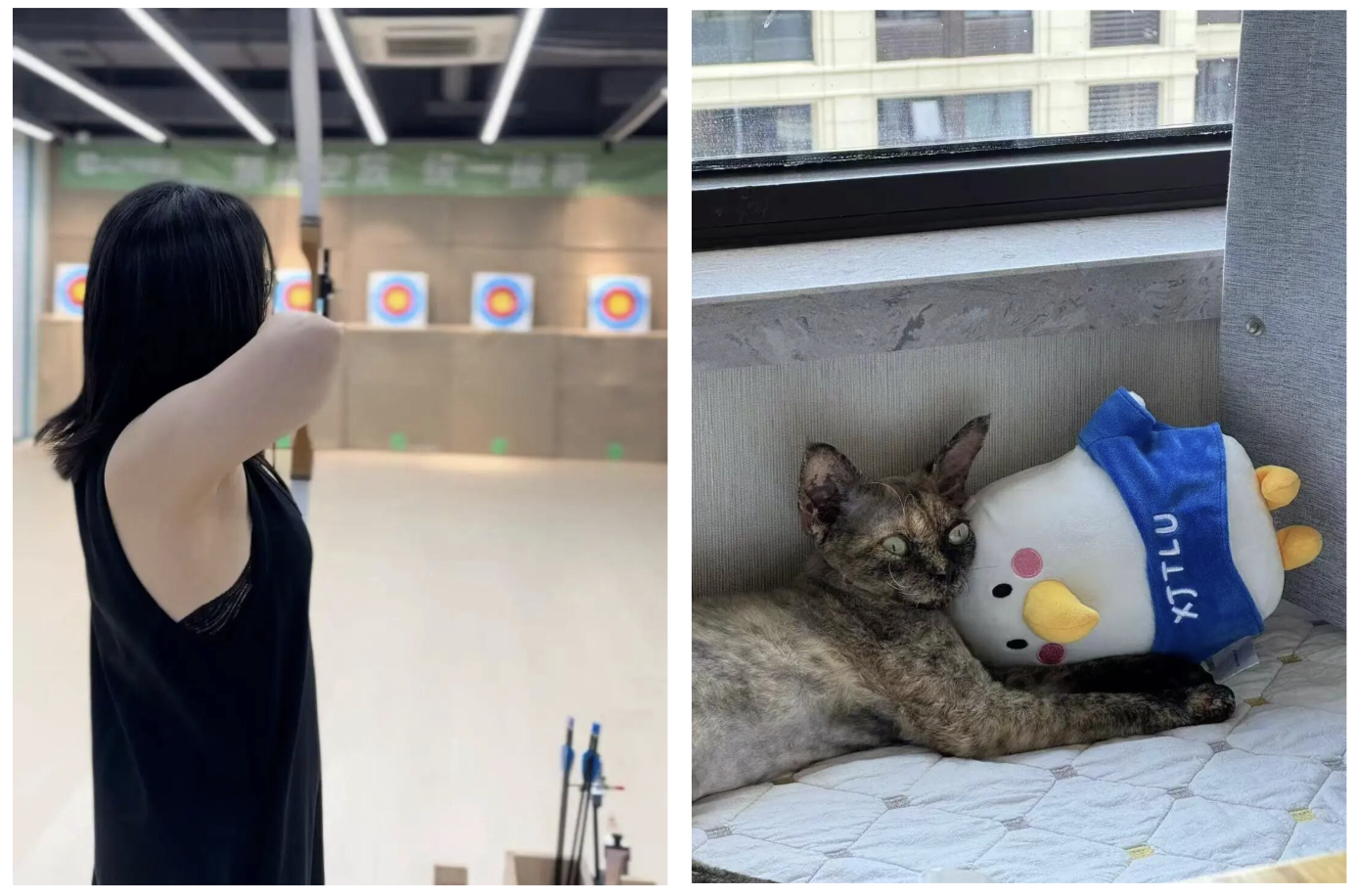10 Sep 2025
Dr Qingning Wang, programme director of the MSc Media and Communication programme, on her academic journey and on fostering a flexible, student-centric curriculum.
媒体与传播硕士课程主任王清凝博士讲述了她的学术历程以及如何打造灵活的、以学生为中心的课程。
By WEIZHONG HUANG
When discussing the most essential qualities of a programme director, Dr Qingning Wang does not start with “reform.” Instead, she talks about “understanding”: understanding the curriculum structure, understanding students’ needs, and understanding the logic of the system.
“I don’t think the first step is to start changing things right away,” she said. “It’s to figure out the fundamentals of the programme: what’s already working well, and which parts need real attention.”
This emphasis on understanding has been embedded in her academic journey from the start. Dr Wang earned her BA in Society, Culture and Media from the University of East Anglia, followed by an MA in International Politics and East Asia from the University of Warwick. In 2017, she completed her PhD in Media and Politics back at UEA.
She is originally from Kunming, a city in China’s Yunnan Province, known for its beautiful scenery, delicious food, and year-round spring-like climate.
“I’ve always been interested in media and communication, and at the same time, I’ve been drawn to international politics. So, in a way, my path unfolded quite naturally,” she said with a smile.
It is this interdisciplinary background that has shaped her open approach to both research and teaching. She began teaching while pursuing her PhD at UEA, then went on to lecture in Media Studies at the University of Kent before joining Xi’an Jiaotong-Liverpool University in 2021 as an Assistant Professor in the Department of Media and Communication. Over time, her research has evolved from focusing on state communication and digital politics to addressing topics such as platform governance, online hate speech, and digital culture.
She sees integrating research into teaching as an important way to foster students’ critical thinking. Meanwhile, her increasing involvement in course planning helped her develop a deeper understanding of both curriculum structure and students’ academic trajectories. In 2023, she was appointed Programme Director of the MSc Media and Communication programme. This was not a sudden leap, but rather a natural shift built upon years of teaching and research.

Dr Qingning Wang at Xi’an Jiaotong-Liverpool University. Photo courtesy of Dr Wang.
Pivoting to student-centered design
Since taking on the role of Programme Director in 2023, Dr Wang has approached the position with caution and care. “The first thing I did wasn’t to propose changes,” she said, “but to understand how the programme runs and what students genuinely need.”
In the conversation, she explained that the MSc programme used to offer two distinct pathways – Professional Communication and Global Media and China – from which students had to choose. The initial intent was to provide options to suit different academic interests: the former focusing more on practice, and the latter leaning more towards theory.
In practice, the distinct pathways in the previous structure presented an opportunity for improvement. While they were intended to cater to different academic interests, many students expressed a desire for more flexibility in their module choices. “A lot of them said they didn’t want to be boxed in,” Dr Wang recalled. This feedback, along with an aim to optimize course delivery, inspired a reevaluation of the program's framework.
Following extensive consultation with students and colleagues, Dr Wang and the programme team initiated a key reform: the two original pathways were removed as formal tracks. Instead, Professional Communication and Global Media and China were redefined as guiding “themes” of the programme. Each module is now labelled to reflect its orientation – more theoretical or more practical – and students can freely combine modules across both themes to match their individual interests. “We wanted students to have more autonomy and explore their academic paths freely, rather than being confined to a pre-set track,” she explained.
Dr Wang was quick to clarify that this reform was a collective effort. “As Programme Director, I see myself as a facilitator. I work closely with the management team, the department Teaching and Learning Committee, and student representatives to help students achieve what they want and bring flexibility into reality.”
Of course, reform also brought its share of administrative challenges. “One of the biggest hurdles is paperwork,” she admitted. “When you change a programme structure, there are countless forms to fill in and meetings to attend. You have to talk to people from various departments and find a balance between different needs.” In her view, the role of PD is less about setting policies unilaterally and more about negotiating the space between teaching, administration, and student experience.

Dr Wang enjoying her holiday in Kunming. Photo courtesy of Dr Wang.
Cultivating judgement, finding inspirations
In addition to her management duties, Dr Wang is also an active teacher. She firmly believes that theory and practice should not be viewed as opposites but rather as mutually reinforcing tools for student development. “I don’t think academic and practical approaches are separate in media and communication,” she said.
She pointed out that the traditional divide between academia and industry is narrowing. “In the past, some scholars tended to position themselves as critics of the industry, but now we see more collaboration. What we really want students to understand is that theory is not abstract or dry. It’s a way of thinking – a kind of skill.”
She illustrated this with a relatable example: “Nowadays, everyone can take photos, shoot videos, and even edit them – ten-year-old kids can do that. The technical part isn’t that hard anymore. But what we want students to develop is judgment: the ability to look at a piece of work, see what works, what doesn’t, and why. That’s the kind of ability theory can give you.”
For her, theory is not just knowledge – it’s a way to analyze, critique, and build meaning. It allows students to not only to “create”, but also to “explain” their work, and understand the thinking behind it. “What we really want to offer students isn’t just technical skills,” she says, “but the knowledge and capability behind doing something well.”
Her face lit up when talking about the most rewarding part of her teaching: “At the beginning of the academic year, many of the students appear like a blank page. But by the time they finish – whether it’s a dissertation or a final presentation – you can see how much they’ve grown. They start choosing modules on their own, finding their interests, completing projects. That transformation is the most fulfilling part for me.”
She also reflected on how her students have influenced her thinking. "In many ways, it's the students who have shaped how I understand academia," she says. "If we don't stay connected to what students need, we risk becoming irrelevant. They constantly remind me of what the world expects from education and how we should respond."
Dr Wang also credited one key figure in her academic journey – Professor Xiaoling Zhang, the current Head of Department at DMC. “She was actually the external examiner at my PhD viva,” she recalled. “We had a great academic exchange at the time. Years later, I found out she would also be joining XJTLU as our HoD, and that was a wonderful surprise.” Dr Wang said that Professor Zhang has been a strong source of support in her professional development and that she has learned a lot from her about balancing teaching, research, and academic leadership.

Dr Wang practising archery. Dr Wang’s feline friend Mica.
Photo courtesy of Dr Wang.
From fitness to humane experience
In recent years, Dr Wang’s research interests have expanded toward topics that are more grounded in everyday life and personal experience, including environmental communication, fitness culture, and the discourse of the body. This shift, she explained, was originally triggered by a small lifestyle change. “During the pandemic, I started exercising more at home. I’ve always been someone who enjoys working out, but I’m also a researcher – so at some point, I thought, maybe this is worth studying.”
Currently, she is collaborating with Dr Jiyu Zhang from DMC on a project about the CrossFit culture in China. For Dr Wang, this project is a departure from her previous focus on international politics and macro-level communication. “This isn’t about global politics or state power,” she said. “It’s about individuals, about communities, about the real experiences people go through every day.”
She added that this direction has also deepened her appreciation for social sciences. “I’ve always been a social scientist, but doing this kind of project makes me feel like I’m really working with people,” she said with a laugh. “It feels more humane.”
Outside of academia, she maintains a relatively structured daily rhythm. “I need to get up before 9 a.m. to feed my cat, and after work, I go to the gym or swimming pool – at least three times a week.” She described this routine as a personal ritual that marks the transition between “work mode” and “life mode.” Regular exercise, she said, not only helps her manage energy but also brings balance to her academic and personal life.
She also shared that she often returns to her hometown of Kunming – not for work, but as a way to completely switch off and recharge. “I go back home to escape work,” she said with a laugh, describing Kunming as her place of retreat rather than professional engagement.
Dr Wang also values the relationships she shares with her colleagues and the sense of support within the department. She mentioned a small but warm tradition within the department, crediting Dr Laura Sava for initiating it. When it's someone's birthday, Dr Sava is always the first to post good wishes and remind everyone. “It’s a small ritual, but it really makes you feel like you’re in a community that cares.”
As for how she would like others to perceive her – if not by her professional titles – Dr Wang paused for a moment and smiled. “I hope people see me as someone easy to work with. Someone you can talk to, collaborate with, and rely on.”
END
Story:WEIZHONG HUANG / DMC Newsletter.
Courtesy of the scholastic journalism team, Department of Media and Communication, XJTLU.
10 Sep 2025








